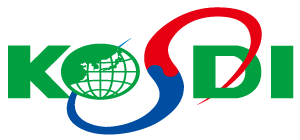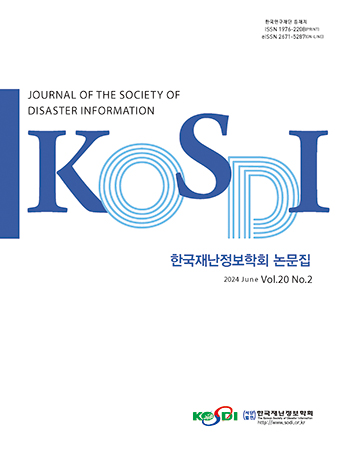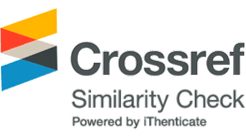Original Article
Abstract
References
Information
Purpose: We suggest the need to utilize ESG in the safety field to prevent serious industrial accidents. Method: The Serious Accident Punishment Act, a strong serious accident prevention system, was reviewed through a review of previous research. And through comparative analysis of serious accident data from the United States and Korea, the main causes of accidents in the domestic chemical industry were derived. Result: It was determined that there was a need to induce voluntary safety management by companies through ESG management along with the Serious Accident Punishment Act, which aims to prevent corporate accidents. Through statistical analysis of accident data, it was confirmed that the scale of damage and number of deaths in domestic accidents was greater than in the United States. The reason was interpreted to be that there are many accidents caused by human causes in the country. Conclusion: In order to compensate for the lack of voluntariness in corporate safety management as well as the Serious Accident Punishment Act and encourage active safety management, the proportion of ‘ESG safety evaluation’ must be expanded. By using ESG as an indirect social sanction, we can expect companies to voluntarily and actively manage safety and expand safety investments in the safety field.
연구목적: 중대산업사고 예방을 위해 안전 분야에서의 ESG 활용 필요성 제시하고자 했다. 연구방법: 선행 연구 검토를 통해 강력한 중대사고 예방 제도인 중대재해처벌법을 검토했다. 그리고 미국과 한국의 중대사고 데이터 비교분석을 통해, 국내 화학산업의 주요 사고원인을 도출했다. 연구결과: 기업의 사고 예방을 목표로 하는 중대재해처벌법과 함께 ESG 경영을 통한 기업의 자발적인 안전관리를 유도할 필요성이 있다고 판단했다. 사고 데이터 분석을 통해서는, 미국 대비 국내 사고는 그 피해 규모와 사망자 수가 큰 것을 확인했다. 그 원인은 국내에서 인적 원인에 의한 사고가 많기 때문으로 해석했다. 결론: 중대재해처벌법 뿐만 아니라 기업 안전 관리의 자발성을 강화하고 적극적인 안전 경영을 유도하기 위해서는 ‘ESG 안전 평가’의 비중을 확대해야 한다. 사회 간접적 제재로써의 ESG를 활용하면 안전 분야에서 기업의 자발적이고 적극적인 안전 관리와 안전 투자 확대를 기대할 수 있을 것이다.
- BlackRock (2022). Investment Ideas, Sustainable Investment Solutions. https://www.blackrock.com/kr.
- Cho, J.W. (2022). A Study of ESG Management Environment and Security Management System for Small and Medium-sized Enterprises. Master Thesis, Chung-Ang University.
- Jeon, J.Y. (2021). "Corporate Social Responsibility (CSR) through collaboration between social enterprises and a large corporation: The case study of GS SHOP." Social Enterprise Studies Vol. 14, No. 1, pp. 173-205.
- Jeon, S.J. (2021). Comparative Analysis of Domestic Chemical Accident Prevention Programs by Fields. Master Thesis, Chung-Buk University.
- Jeonbuk Daily (2023). After one year of enforcement of the Severe Accident Punishment Act, the results are minimal Jeonbuk investigation, 7 cases, punishment '0'. https://www.jjan.kr/article/20230125580209.
- Jung, J.W. (2021). "Legal issues in the establishment of Act on the Punishment, etc. of Serious Accidents and Tasks Left Behind." Hannam Journal of Law&Technology, Vol. 27, No. 2, pp. 47-94.
- Kang, T.S. (2021) "Challenges of Korean Occupational Safety and Health Administrative organizations related to enforcement of the Serious Accidents Punishment Act." Seoul National University Labor Law Research Society, Labor Law Study, No. 51, pp.75-109. 10.32716/LLR.2021.09.51.75
- Kim, J.K. (2023). "Measures to strengthen the effectiveness of the Serious Accident Punishment Act." Ajou Law Review, Vol. 17, No. 2, pp. 53-80.
- Kim, S.J. (2021). Study on K-ESG Development Plan Based on the Results of Analysis of ESG-related International Standards. Master Thesis, Chung-Ang University.
- Kim, S.Y., Lee, S.C. (2016) (2021). "The voluntary disclosure of corporate social responsibility activities and earning persistence." The Journal of Business Education, Vol. 30, No. 2, pp.165-184.
- Korea Occupational Safety and Health Agency (KOSHA) (2021). Measures to Spread Autonomous Safety and Health System through ESG Management. Korea Occupational Safety & Health Agency Technology General Headquarters, Korea.
- Korea Occupational Safety and Health Agency (KOSHA) (2021). Research on Policy Measures to Prevent Serious Disasters. Korea Occupational Safety & Health Agency Technology General Headquarters, Korea.
- Ministry of Legislation, National Statistical Information Center (2023). Act on Punishment, etc. of Serious Disasters. Korea.
- Ministry of Legislation, the National Statistical Information Center (2023). Enforcement Decree of the Act on the Punishment, etc. of Serious Disasters. Korea.
- Ministry of Trade, Industry and Energy (2021). K-ESG Guidelines v1.0, Korea.
- Oh, J.H. (2022). "[Labor/Safety] New awareness of 'safety' is needed." Hankyung ESG, Vol. 7, pp. 28-29.
- Park, H.J. (2020). Analysis of the Status and Characteristics of ESG Funds in Korea. Korea Capital Market Institute, Korea, pp. 1-7.
- Related Ministries Jointly (2022). Serious Accident Reduction Roadmap. Korea.
- Safety Journal (2023). Response to the Severe Accident Punishment Act and ESG Management. https://www.anjunj.com/news/articleView.html?idxno=31647.
- Yang, O.S. (2022). "A research on the effect of non-financial ESG activities on the firm performance: Evidence from 73 domestic financial institutions." Journal of CEO and Management Studies Vol. 25, No. 3, pp. 211-240. 10.37674/CEOMS.25.3.11
- Young, E.Y. (2012) Environmental Educational Considerations Following Hazardous and Toxic Substance Leakage Accidents: Perspectives on the Bhopal Gas Leakage Accident in India and the Hydrofluoric Acid Gas Leakage Accident in Gumi City. Korean Society of Environmental Education, Korea, pp.189-192.
- Publisher :The Korean Society of Disaster Information
- Publisher(Ko) :한국재난정보학회
- Journal Title :Journal of the Society of Disaster Information
- Journal Title(Ko) :한국재난정보학회논문집
- Volume : 19
- No :4
- Pages :826-833
- DOI :https://doi.org/10.15683/kosdi.2023.12.31.826




 Journal of the Society of Disaster Information
Journal of the Society of Disaster Information







